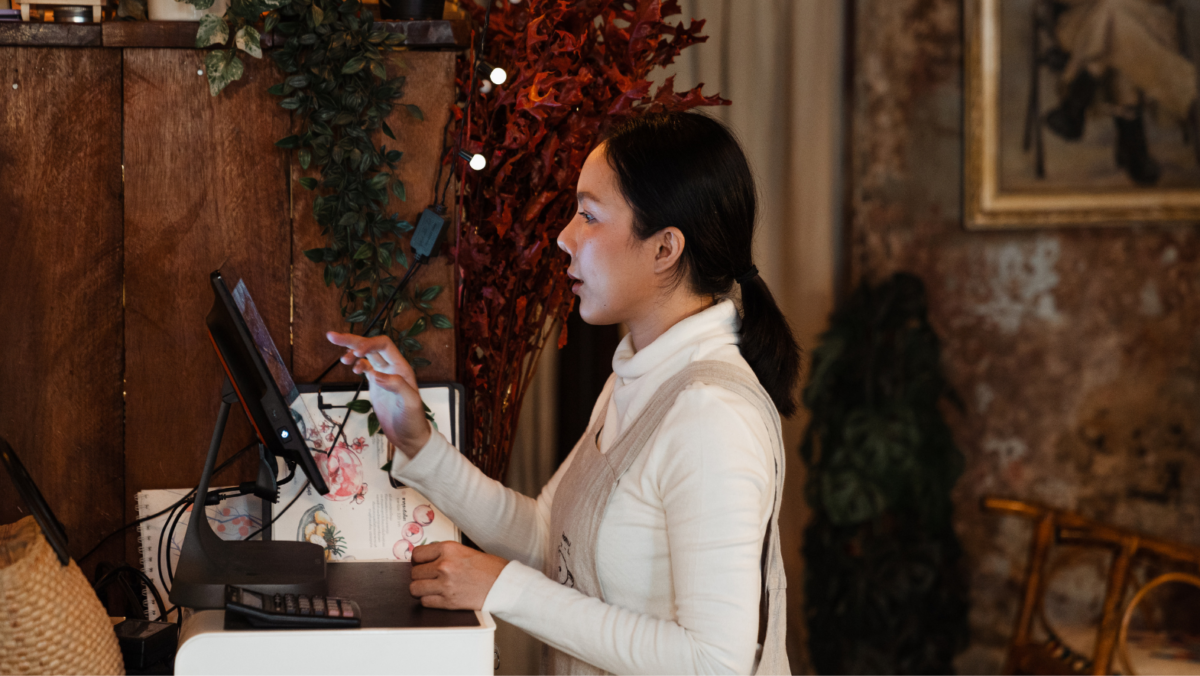
Your next order of fried chicken at a New York City restaurant may come with a “hello” from the Philippines.
Virtual assistants based in the Philippines have become a sought-after option for companies who want to do more with less.
Some restaurants in New York City are now exploring this option to keep up with the rising costs of labor, rent and other overhead expenses.
As minimum wages soar – $16 in New York City and now $20 for fast food workers in California – restaurant owners are feeling the pinch.
READ: Mom shares why working-from-home is a blessing
Beamed on flat-screen monitors at self-service kiosks, virtual hosts from the Philippines are now taking orders at restaurants, including Yaso Kitchen, Sansan Chicken in Long Island and East Village. They welcome customers with flashing smiles — a hospitality trait Filipinos are renowned for.
Remote workers
Behind this concept is Happy Cashier, the brainchild of 34-year-old Chi Zhang. A social media post about these remote workers went viral, bringing this innovative approach into the public eye.
This business approach has attracted business owners, boosting customer service in stores across Manhattan, Queens and Jersey City, including Sansan Ramen, the sister company of Sansan Chicken and Yaso Kitchen, a Chinese restaurant known for soup dumplings.
READ: Some work from home jobs that might just be a fit for you
The program has been quietly experimenting with the concept since October, with their website still in the works.
The New York-based Happy Cashier outsources virtual assistants mostly from the 1.3 million Filipinos working in the business processing industries (BPO) sector, the biggest globally.
The company pays Filipino virtual assistants $3 per hour — way less compared to US wages but considered a competitive rate in the Philippines.
Aiming to incorporate fair wages into fiscal accountability, Chi Zhang told Fortune, “We pay 150% more than the average cashier job in the Philippines.”
READ: Residents in Cebu scramble to install internet connection as they work from home
Filipino virtual assistants
In a New York Times report, Will Jang, a Goldman Sachs employee, shared his personal encounter with these Filipino virtual assistants at a Yaso Kitchen branch in Jersey City.
Jang said he completely ignored Amber, the Filipino virtual host assisting him with his order, thinking it was “some advertisement” similar to pre-recorded videos in taxi cabs.
“It’s my first time to work in a work-from-home setup,” Amber, whose image was displayed onscreen with a cartoon dumpling backdrop, said.
READ: Meet O, the Fil-Am-founded AI assistant for families
Like all virtual assistants from the Philippines, recognized as one of the largest English-speaking nations, Amber and other Filipinos working for Happy Cashiers speak perfect English.
Customers of Sansan Chicken interact with virtual cashiers who manage their orders — a system that Zhang describes as efficient.
“The help from Happy Cashier has successfully increased operational efficiencies,” he said.
Extremely troubling
However, Zhang’s concept has fueled debate. Critics argue that outsourcing puts pressure on domestic wages and can potentially transform industry standards.
Teófilo Reyes, chief of staff at nonprofit labor organization Restaurant Opportunities United, described the idea as alarming.
“The fact that they have found a way to outsource work to another country is extremely troubling,” Reyes told The New York Times.
Jonathan Bowles, Center for an Urban Future executive director, said the fast-food workforce is already shrinking and “new technology could further transform the industry.”
Zhang remains optimistic about his business concept’s potential to reshape the food landscape, revealing plans to expand the employment of virtual assistants to over 100 restaurants by the end of the year.
